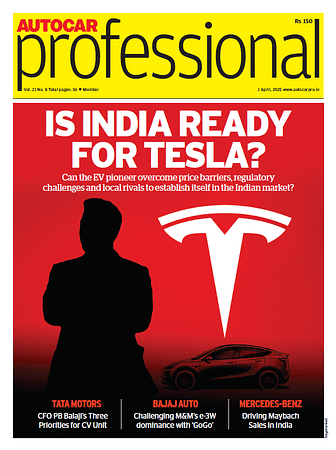BMW development boss: our cars will always have steering wheels
The firm has launched a new vision of autonomous driving – but Klaus Frohlich insists the driver remains vital.
BMW development boss Klaus Frohlich has vowed that the firm’s machines “will always have a steering wheel” – and says its autonomous machines, such as the production version of its new Vision iNext concept, will enhance the enjoyment of driving.
The Vision iNext concept previews a machine that will go on sale in 2021. Depending on local legislation and infrastructure, BMW says it will be capable of ‘level four’ autonomy in certain situations, meaning the driver will not need to pay attention to what the car is doing.
Asked by Autocar how BMW would balance developing autonomous technology with its reputation for making driver’s cars, Frohlich said: “It’s not difficult. We are not a robotics or technology company; we are a car company.
“But there are some situations – for example, in traffic – where sheer driving pleasure is not possible, even in a BMW. Sometimes you can enhance driving pleasure by not driving.”
He added: “BMW cars will always have a steering wheel. The cars we have launched recently have been developed with a precise steering feel and to offer an emotional driving experience. Autonomous systems are additional to that. BMW cars are still the ultimate driving pleasure.”
Several of BMW’s rivals are developing ‘level five’ autonomous vehicles that won’t feature a steering wheel at all. The VW Group has established a new sub-brand called Moia, while Volvo launching a new M firm focused on mobility services. But Frohlich said building such a vehicle was of no interest to BMW.
“That’s the same reason we do not build vans or trucks,” he said. “We are sticking with cars.”
That said, Frohlich did note that having cars equipped with autonomous systems would be vital for the future, with the possibility that they could be required in certain situations.
“In the future, it could be that some areas of cities are only open to cars that are in autonomous mode, and you may not be allowed to drive in them. Around 80-90% of all road accidents are caused by human error. China is using technology to cut pollution, by pushing battery-electric vehicles. It could use autonomous technology to cut accidents and traffic problems in cities.”
The production version of the Vision iNext will be launched in 2021, and Frohlich insisted that much of the planned autonomous technology would be available on it. He said the machine was likely to offer level three autonomy – requiring the human driver to monitor it in certain situations – at launch, with level four autonomy following when regulations allow.
“We assume that China will be the lead market, then the USA in certain cities, and then Europe later,” said Frohlich. “The change will take at least three decades. We started in 2005, so there’s at least two decades until this applies to all parts of the world.”
RELATED ARTICLES
US tariffs will hurt both automakers and US manufacturing: ACEA
European Automobile Manufacturers’ Association says that the EU and the US must engage in dialogue to find an immediate ...
Trump levies 25% tariff on all cars imported to US
President Donald Trump claims new levy on all cars and car parts shipped into the country will create "tremendous growth...
Hyundai opens its third factory in the US: Metaplant America
Hyundai Motor Group Metaplant America's vehicle assembly and battery plant is the key pillar of the Hyundai Motor Group’...






 17 Sep 2018
17 Sep 2018
 4579 Views
4579 Views








 Autocar India
Autocar India




